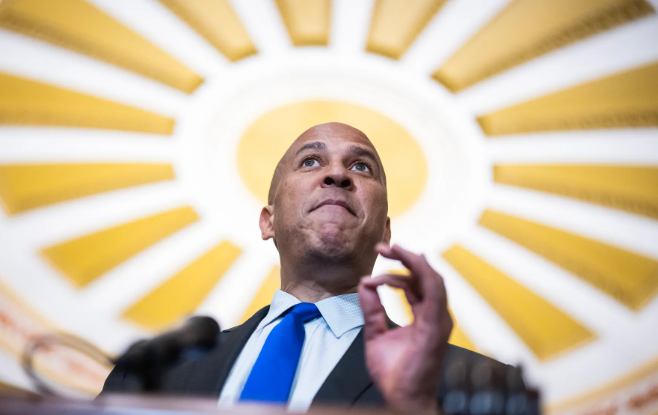New Jersey Democratic Senator Cory Booker set the record for the longest continuous Senate floor speech in the chamber’s history on March 31, lasting 25 hours and five minutes. The record was previously held by Strom Thurmond, who completed a 24-hour and 18-minute-long filibuster of the Civil Rights Act of 1957.
Booker held the speech to show supporters that Democrats are doing what they can to stop the Trump administration. Booker centered his speech on a call for his party to find its resolve, saying, “We all must look in the mirror and say, ‘We will do better.’”
“These are not normal times in our nation,” Booker said as he began the speech Monday evening. “And they should not be treated as such in the United States Senate. The threats to the American people and American democracy are grave and urgent, and we all must do more to stand against them.”
Booker spent his time reading constituents’ letters, answering questions from the Democratic party, and listing the impacts of Trump’s executive orders on the government and the U.S., all while complying with Senate rules. He later told reporters that he had fasted for days before the speech and stopped drinking fluids the night before so he would not have to leave the room and end the speech.
Following the speech, Booker also stated that he is going to attempt to visit Kilmar Ábrego García, the Maryland man who was wrongly deported to a prison in El Salvador. Maryland senator Chris Van Hollen attempted to do the same the week prior, but El Salvador denied a meeting between Van Hollen and García.
Booker wrote on X, formerly Twitter: “The Supreme Court was clear: the Trump administration must act to facilitate the return of Kilmar Ábrego García to the United States. There is no room for debate – yet Trump is refusing, in defiance of a lawful court order. Every member of Congress should be standing up for the Constitution and demanding that the administration act to return Mr. Ábrego García to the U.S. and to his family.”
The case has become a flashpoint in the ongoing tensions between the Trump administration and the Supreme Court, which ruled that the government had a duty to help return García. Justice Department lawyers have argued that they lack the power to secure his release from foreign custody.




